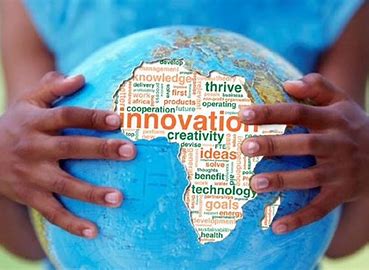How the Continent Can Become the World’s Biggest Success Story in 40 Years
How the Continent Can Become the World’s Biggest Success Story in 40 Years
By Achimi Muktar
Africa stands at the threshold of a historic transformation. Over the next four decades, the continent has the potential to become the world's most dynamic economic powerhouse—outpacing China, India, and the United States in growth and innovation. But will Africa seize this opportunity?
The forces shaping the global landscape today—technological revolutions, demographic shifts, climate crises, and geopolitical rivalries—are also shaping Africa’s destiny. If the continent harnesses its immense resources, youthful population, and strategic partnerships wisely, it can unlock unprecedented economic growth and geopolitical influence.
The Global Context: A Changing World
We are in an era of rapid disruption. The rise of China as an economic superpower, the growing technological dominance of artificial intelligence, and the global struggle for strategic minerals are reshaping the world order. Meanwhile, Africa’s population is exploding—from 1.5 billion today to an expected 3.8 billion by the end of the century. By 2063, the 100th anniversary of African unity, the continent could be the world's largest economic and geopolitical force.
However, while global powers—China, India, Russia, and the U.S.—are actively shaping their futures, Africa remains largely on the sidelines of these conversations. Instead of being a subject of global strategy, Africa is often treated as an object of resource competition. This must change.
How Africa Can Achieve 8–10% Growth for 40 Years
For Africa to achieve sustained economic growth of 8–10% annually—similar to China’s meteoric rise from 1980 to 2020—the continent must focus on five key investment areas:
1. Human Capital: The Power of Africa’s Youth
Africa is the world’s youngest continent, with nearly half its population in the school-age bracket (ages 3–21). This presents an incredible opportunity—if Africa invests heavily in education, healthcare, and skills development.
A well-educated workforce is the foundation of every economic revolution. The return on investment in education is immense—estimated at an internal rate of return (IRR) of 20%. Yet, too many African children are dropping out of school, condemning them to a lifetime of low earnings and limiting the continent’s growth potential.
2. Infrastructure: Connecting the Continent
Africa’s economic future depends on modern infrastructure—transportation networks, power grids, digital connectivity, and climate resilience. The African Continental Free Trade Area (AfCFTA) is a game-changer, but for it to succeed, the continent needs seamless trade routes, efficient border crossings, and high-speed digital networks.
3. Technology & Innovation: Investing in R&D
Africa spends less than 1% of its GDP on research and development (R&D), compared to China and the U.S., which spend around 3%, and South Korea, which invests nearly 5%. If Africa wants to lead in AI, robotics, and digital transformation, it must ramp up investments in homegrown innovation and technology adaptation.
4. Business Capital: Becoming a Global Investment Hub
Africa must move beyond its reliance on mining and agriculture. With skilled workers and strong infrastructure, the continent can attract large-scale investments in manufacturing, services, and digital industries.
5. Natural Capital: Protecting Africa’s Ecosystems
Africa is home to vast biodiversity and critical natural resources. Protecting ecosystems, such as the Congo Basin rainforests, is not just about conservation—it’s a long-term investment in sustainable growth.
Fixing the Finance Problem: The $100 Billion Development Bank Solution
Africa’s biggest challenge isn’t just economic strategy—it’s how to fund it. While Africa’s debt levels are often criticized, the real issue is not enough borrowing on the right terms.
Currently, African governments rely on short-term loans (5–7 years) to finance long-term development (25–30 years). This creates debt crises and IMF bailouts. Instead, Africa needs long-term, low-interest loans that match the long-term nature of its economic transformation.
A major solution? Scaling up the African Development Bank (AfDB) to lend at least $100 billion annually, rather than its current $5–10 billion. Africa must also look beyond the West for financing, building stronger partnerships with the Gulf states, India, and China.
The Path Forward: Uniting for Success
For Africa to become the world’s biggest success story by 2063, the African Union must take a far more active role in economic planning and continental-scale projects. A fragmented approach—where individual countries pursue their own limited agendas—will not work.
With a united strategy, Africa can leverage its 1.5 billion (soon-to-be 3.8 billion) population, vast resources, and youthful energy to become the fastest-growing economic region on Earth.
The world is moving forward. Africa must take its rightful place at the table—not just as a supplier of raw materials, but as a leader in innovation, trade, and global policy.
This is Africa’s time. The next 40 years will determine whether it becomes the biggest success story the world has ever seen.





















